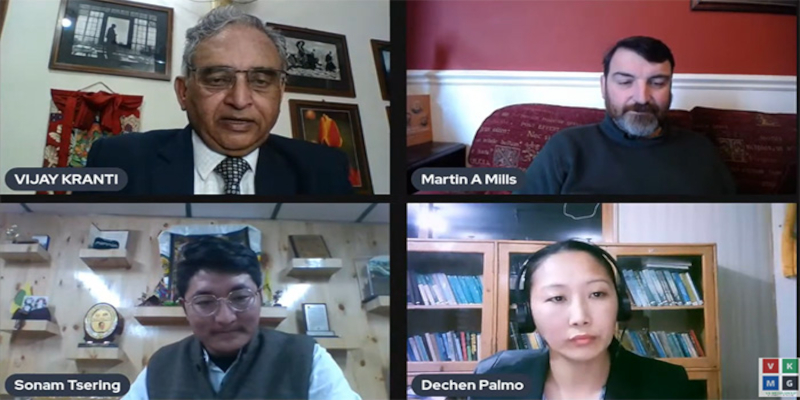Dharamshala, 30th November: The Tibetan Youth Congress (TYC) and the Centre for Himalayan Asia Studies and Engagement (CHASE) from New Delhi co-hosted a webinar on November 27, 2021, in light of the recent conclusion of the international climate summit COP-26 in Glasgow. Experts speaking at the webinar “Climate Changes on the Third Pole – Tibet” agreed that China must halt its mindless exploitation of Tibetan rivers, minerals, forests, and other natural resources and that the international community must confront China in order to save the rest of Asia from ecological collapse.
Dr. Martin Mills, Director of the Scottish Centre for Himalayan Research at the University of Aberdeen in the United Kingdom is one of the key speakers. Although man-made conditions have had an impact on the ecology of the entire planet, Dr. Mills pointed out that China’s actions in Tibet and the exploitation of its natural resources have taken on very dangerous dimensions. “With a warming rate double that of the rest of the world, Tibet has become a climate change hotspot.” Tibet, being the source of Asia’s eight major rivers, supplies water to people in more than a dozen nations. “These waterways have a direct impact on 1.9 billion people and an indirect impact on roughly 4 billion people, or half of the world’s population,” he said.
He said that, in addition to its snow and rivers, a large portion of Tibet is permafrost, which has grasslands on top but holds vast volumes of frozen water in the lower strata of the soil. With the rapid rise in surface temperature in many sections of Tibet, subterranean ice is melting, resulting in the land sinking and major landslides in recent years. This will eventually cause the top grasses to die and a large portion of Tibet to become desertified. Dr. Mills cited the Gormo-Lhasa railways as an example of a Chinese showcase project in Tibet, saying that a large portion of the railway line is built on permafrost. Increasing temperatures in Tibet will likely cause major damage to this railway route, rendering the project infeasible within a few years.

